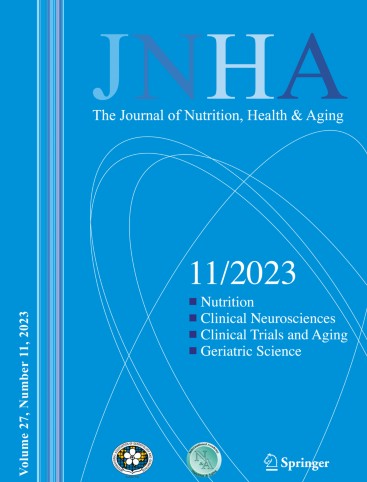韩国成人高敏感性c反应蛋白水平与海鲜消费与睡眠质量的关系
IF 4
3区 医学
Q1 GERIATRICS & GERONTOLOGY
引用次数: 0
摘要
海产品是n-3多不饱和脂肪酸(如二十二碳六烯酸和二十碳五烯酸)的主要来源,食用海产品与睡眠质量有关。海鲜及其生物活性成分可能通过调节全身炎症和神经内分泌途径来改善睡眠质量。然而,关于海鲜消费、睡眠质量和炎症状态之间相互作用的纵向研究缺乏。因此,在这项来自韩国基因组和流行病学研究的2332名参与者的队列研究中,我们调查了炎症状态在海鲜消费与睡眠质量差风险之间的潜在调节作用。方法和测量方法采用一份包含106个条目的食物频率问卷对膳食摄入量进行评估。高敏c反应蛋白(hs-CRP)水平被评估为系统性炎症状态的标志。采用匹兹堡睡眠质量指数评估睡眠质量。采用Cox比例风险模型估计睡眠质量差风险的风险比(HR)和95%置信区间(CI)。结果经过6年的随访,分别记录了118例和192例睡眠质量差的男性和女性。更多的海鲜消费与较低的睡眠质量风险显著相关。多变量校正后的比值(95% CI)为0.66 (0.45-0.98)(p-trend = 0.032)。这种负相关似乎仅限于hs-CRP水平较低的参与者。结论食用海鲜对睡眠质量的有利影响可能因炎症状况而异。更大规模的队列研究可以证实我们的发现。本文章由计算机程序翻译,如有差异,请以英文原文为准。
Association of seafood consumption with sleep quality according to high sensitivity C-reactive protein levels in Korean adults
Objective
The consumption of seafood, which is major sources of n-3 polyunsaturated fatty acids, such as docosahexaenoic and eicosapentaenoic acids, has been associated with sleep quality. Seafood and its bioactive components may enhance sleep quality by regulating systemic inflammation and neuroendocrine pathways. However, longitudinal studies examining the interplay between seafood consumption, sleep quality, and inflammatory status are lacking. Therefore, in this cohort study of 2332 participants from the Korean Genome and Epidemiology Study, we investigated the potential modulatory role of inflammatory status for the association between seafood consumption and the risk of poor sleep quality.
Methods and measurements
Dietary intake was assessed using a validated 106-item food frequency questionnaire. High-sensitivity C-reactive protein (hs-CRP) levels were assessed as a marker of systematic inflammatory status. Sleep quality was assessed using Pittsburgh Sleep Quality Index. The hazard ratio (HR) and 95% confidence interval (CI) for the risk of poor sleep quality was estimated using Cox proportional hazards model.
Results
After 6 years of follow-up, 118 and 192 cases of poor sleep quality were documented among men and women, respectively. The greater seafood consumption was significantly associated with lower risk of poor sleep quality. The multivariable-adjusted HR (95% CI) comparing the highest with the lowest tertile of seafood consumption was 0.66 (0.45–0.98) (p-trend = 0.032). This inverse association appeared to be limited to participants with lower levels of hs-CRP.
Conclusion
Our results suggested that the favorable effects of seafood consumption on sleep quality could vary by inflammatory status. Larger cohort studies are warranted to replicate our findings.
求助全文
通过发布文献求助,成功后即可免费获取论文全文。
去求助
来源期刊
CiteScore
7.80
自引率
3.40%
发文量
136
审稿时长
4-8 weeks
期刊介绍:
There is increasing scientific and clinical interest in the interactions of nutrition and health as part of the aging process. This interest is due to the important role that nutrition plays throughout the life span. This role affects the growth and development of the body during childhood, affects the risk of acute and chronic diseases, the maintenance of physiological processes and the biological process of aging. A major aim of "The Journal of Nutrition, Health & Aging" is to contribute to the improvement of knowledge regarding the relationships between nutrition and the aging process from birth to old age.

 求助内容:
求助内容: 应助结果提醒方式:
应助结果提醒方式:


